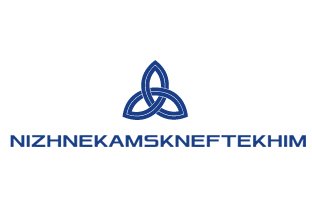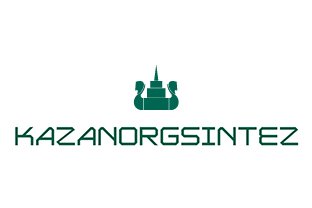Universities and technical schools can no longer train specialists for industry alone
Now enterprises are also urged to get involved
The meeting organized by Realnoe Vremya online newspaper brought together representatives of the ministry of labour, ministry of industry and trade, representatives of several universities, enterprises and training centres. They talked about how the balance of supply and demand in the field of personnel for industrial enterprises of the republic has shifted and who should train specialists. The general idea lies on the surface — both educational institutions, enterprises and the state should work on training in the conditions of the new time. But in details, experts differed.
Demand in labour market does not match supply
Elmira Zaripova, the minister of labour, employment and social protection, briefly outlined the current situation on the labour market. The official unemployment in Tatarstan is at the level of 3%, which is lower than the Russian average (4,5%) and in the Volga Region (4,1% of the working population).
The employment service in the republic now offers about 43,000-44,000 vacancies, the average salary offer is about 30,000 rubles. This correlates well with the average salary in the Republic of Tatarstan (about 32,000 from January to September).
At the same time, those who are now registered in the public employment service, for the most part, do not suit employers for professional qualifications. About 60,000 people are in constant search for a job in Tatarstan. Of course, not all of them are officially registered as unemployed in the employment service — there are only 10,000. The rest look for a job through online services and friends. In turn, out of 10,000 “official” unemployed, 20% are people of pre-retirement age, 60% are women.
The new portrait of blue collars: “four in one”
For the whole two hours, the common thread of conversation was reduced to the question who should prepare new workforce — educational institutions or enterprises? Representatives of enterprises stated that the new time brings new challenges, and now even a linear worker must work not only with his hands but also with his brain: to know new equipment, to be a little programmer, a little engineer, a little technologist. And so almost everywhere. Manual labour is transformed into mental labour, and the portrait of even a linear worker in the workplace is changing.
Elena Romanova, the head of the personnel department at Essen Production confectionery factory, vividly demonstrated this by an example at their company.
She was echoed by Emil Gubaydullin, the director general of Centre for Development of Professional Competence ANO, project manager of WorldSkills 2019:
“Today it is not enough to be just a competent expert in your field. In addition to hard skills, aspects of soft skills development are becoming very important: the ability to communicate, organize the work, labour protection. We talk a lot today about automation: the specialist must be multidisciplinary. Many competencies are becoming cross-cutting, and many of them are now tied to programming. For example, we are now introducing the competence of Digital Fashion Designer, and this is becoming more and more every year.
Who should train new specialists?
In this regard, the discussion turned out to be particularly informative. The time when a university or college graduate could immediately benefit in the workplace has passed. Representatives of industrial enterprises shared their pain that it is almost impossible to find a ready-made specialist for production — they either have to teach him at the enterprise from scratch or to involve in the process, closely interacting with educational institutions.
Educational institutions retorted that they, by the way, also do not stand still and try to work with enterprises.
Rodion Bulashov, the deputy director general for personnel and social affairs Nizhnekamskneftekhim PJSC, argued that there are two ways to obtain qualified personnel. The first is to entice specialists away with high salaries. But such specialists, according to Bulashov, will not be motivated by either strategy or corporate spirit — only money. The second way is to grow a specialist on your own, to create all the conditions for this.
“For us, this issue is quite acute, and every year we devote more and more time to it. We, in Nizhnekamsk, live in such city and in such region where the majority of the largest petrochemical enterprises is concentrated. We have resource centres — the college of oil refining, we are seriously working with the branch of the Kazan National Research Technological University (KNRTU). We also have internal training programmes at the enterprise.
Elena Romanova says that there had not been large confectionery production in the region before Essen Production, so they had to attract the staff — it is more than 600 employees — from the outside, and someone — to train from the ground up.
“We have faced with the fact that no educational institution in our region trains the linear staff in our key speciality — linear operator. Now we are discussing cooperation with the branch of the Kazan Federal University (KFU) in Naberezhnye Chelny in providing us with students for practical training. In our turn, we will provide them with our specialists to train them in our direction. But the question arises: if employees go to teach young people, who will remain working at this time? And we are again faced with the dilemma: we have to distract specialists from the production process and send them to educational institutions.”
But the participants of the discussion stated: nothing will work out without it. Therefore, now the social institution of creating training centres at enterprises is actively developing — we see this on the example of KAMAZ and other large enterprises.
The republic is working closely on the interaction of the employer with educational organizations. Specialised departments are created, training is carried out not only under the dual system when teachers are heads of shops, it is highly developed in the training centres of enterprises, but also in the system of resource centres. The enterprise can form 30% of the curriculum for its needs under which its resource centre (for example, technical school) works. But for this, it is necessary to provide educational institutions with the equipment on which students study and to send experts to instruct young people.
How to determine the need for personnel and “stop preparing cashiers and 1Caccountants”?
Maria Yashenkova, the director of Bright Consulting Agency, suggested that the state should pay attention to that it is necessary to identify the lack of new specializations in the enterprise systematically.
“Especially those who live in Zakamye know how acute there is a need for personnel. Successfully developing SEZs entice specialists away from each other in all possible ways. But in fact, the need to train specialists is completely shifted on the enterprise. The enterprise always bears the burden of retraining. The institute (except for narrow specializations, like doctors) graduate people who cannot do what is needed for the industry. And these specialities need to be completely restructured by the enterprises.”
In response to this, Elmira Zaripova said that the republic makes a forecast of the needs of enterprises in certain specialists, which is revised every 7 years:
“With the ministry of industry and trade, we sent this forecast to the districts a few years ago, and the districts asked their enterprises. All large enterprises are involved in this, and now we are attracting medium-sized ones. Small businesses are not involved in this yet because they have a very short planning period. In our programme to reorient employment centres, we already say that employers should be involved in the process. But the second link should be with the education system. It is necessary to stop preparing cashiers and 1C accountants and to form programmes for specific enterprises. But until we work out the model, we can't scale it up.”
So, systemic work is being carried out at the republican level. For example, about 1,000 professional standards have already been drawn up for most working specialities. But Andrey Fedorov, the head of the corporate governance department at the ministry of industry and trade of the Republic of Tatarstan, complained that there are companies that do not participate in the process of forming the list of necessary personnel:
“When we ask businesses, we spend weeks trying to get at least the answer 'We don't need anything.' There is such a problem! If businesses are actively involved in this forecast, the progress will move faster.
Fedorov said that the ministry of industry and trade is also studying the needs for short-term programmes of retraining and advanced training when there are already working professionals but they do not have enough qualifications. These programmes last from three to six months. The system of early technical vocational guidance of schoolchildren also works in the republic, and the WorldSkills movement is actively involved in this work.
The whitewashing of the blue collar: lifelong learning
Alexandra Savostyanova, the head of the press service of Headhunter in the Volga Region, confirmed that there is a deficit in the market of highly qualified personnel, and it is very large. Separately, she noted that the top 5 by demand, in addition to traditional representatives of the IT sector, also included sales specialists.
“As Mikhail Krechin said: 'It is not enough to produce a product — it is also necessary to sell it. The seller in a store and the seller who conducts international transactions on multimillion-dollar contracts are different specialists, and the latter is a huge need for enterprises.” Production workers and working personnel are in great demand. And the trend now is that both production workers and working personnel must now be highly qualified. Now there is a “whitewashing of the blue collar” taking place, manual labour is really seriously added with intellectual one.
Official partners:
 |  |